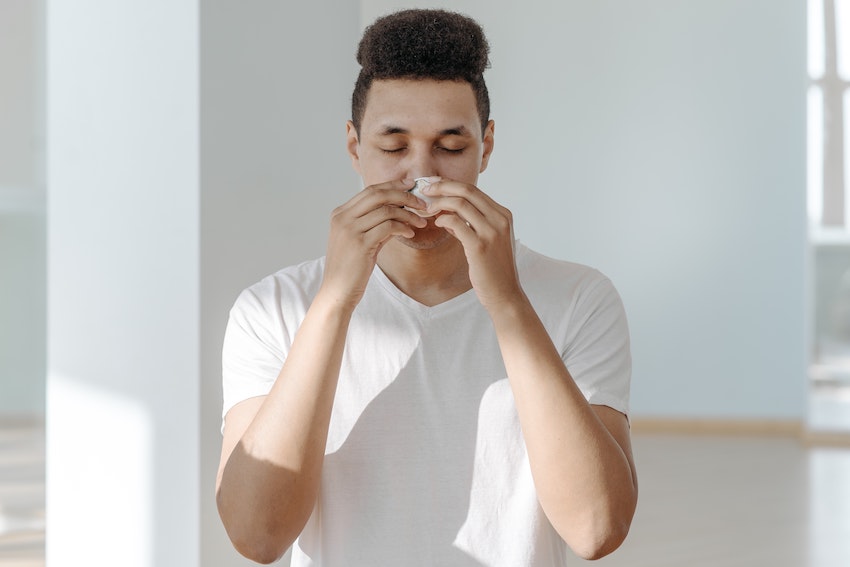3 Tips on How To Manage Seasonal Health Conditions
Seasonal health conditions such as hay fever and asthma affect millions across Ireland and The UK annually.
According to asthma.ie ‘Every year, approximately one in ten people in Ireland experiences the discomfort of allergic rhinitis, commonly referred to as Hayfever’ And research shows that up to one in three people in the UK suffer from hay fever, while asthma affects over 3 million people.
With such a high prevalence, knowing how to manage these conditions effectively is essential. Perhaps, you are the one who endures the seasonal discomforts, or you know someone who does. Here are three tips for managing such seasonal health conditions.
Please note: SAD ‘Seasonal Affective Disorder‘ affects 1 in 15 people in Ireland. Usually symptoms start and end at the same time each year, beginning in Autumn. Symptoms can include feeling depressed, having difficulty concentrating, sleep issues and low energy. If you are suffering, please see your GP for advice.
Further Reading: How To Care For Your Mental Health – 10 Simple Steps to Help
How To Manage Seasonal Health Conditions Tip 1
Identify Triggers and Plan for Them
Identifying your triggers is one of the most important steps in managing seasonal health conditions. For example, you may be sensitive to pollen, dust, or animal dander if you suffer from hay fever. If you have asthma, exercise or certain environmental conditions, like cold air, can trigger your symptoms.
Once you have identified your triggers, you can plan to avoid or reduce exposure. There are several ways to avoid triggers. For example, if you have a pollen allergy, you can check the pollen count in your area and plan outdoor activities accordingly. Practices like keeping windows and doors closed during high pollen counts and wearing a mask when gardening or mowing the lawn are also recommended.
For people with asthma, it is important to warm up before exercising and avoid doing so in cold weather. The latter puts immense pressure on your lungs to retain as much oxygen as possible. Additionally, wearing a scarf over your mouth and nose during exercise in cold weather can help warm the air you breathe and reduce the risk of asthma symptoms.
How To Manage Seasonal Health Conditions Tip 2
Take Medication as Prescribed
If you have been diagnosed with a seasonal health condition, taking medication as your healthcare provider prescribes is crucial.
Many people make the mistake of stopping their medication once they feel better, but this can lead to a relapse and a possible aggravation of symptoms brought under control.
There are different types of medication for seasonal health conditions. For hay fever, antihistamines and nasal corticosteroids can reduce symptoms like runny nose and itchy eyes.
For asthma, bronchodilators help relieve symptoms such as wheezing and shortness of breath. It’s important to use medicines correctly, following the instructions on the label or as advised by your healthcare provider. If you are unsure how to use your medication, speak to your healthcare provider or pharmacist.
It is also important to keep your medication with you at all times, especially if you have asthma so that it will be easily available during emergencies. Usually, an allergic reaction treatment will have better outcomes when administered early enough.
How To Manage Seasonal Health Conditions Tip 3
Practice Self-care
It can be challenging to manage a seasonal health condition, on top of your everyday life activities, so it’s important to prioritise your overall health. This includes getting enough rest, eating a healthy diet, and staying hydrated regularly.
Rest or quality sleep reduces stress, decreases blood cortisol levels, and improves immune function. A healthy diet also improves your body’s ability to fight infections better and quicker. Meanwhile, hydration helps improve circulation and flush toxins out of your system, while regular physical activity significantly improves your overall health and the severity of symptoms.
Did you know that exercise strengthens your lungs? That happens because of the deeper inhalation that takes place during workouts. As your lungs inflate and contract rapidly, they get stronger and increase oxygen capacity, making it essential to be physically active.
Photos by Pavel Danilyuk
Follow The Life of Stuff on Facebook | Twitter | Pinterest | Instagram







